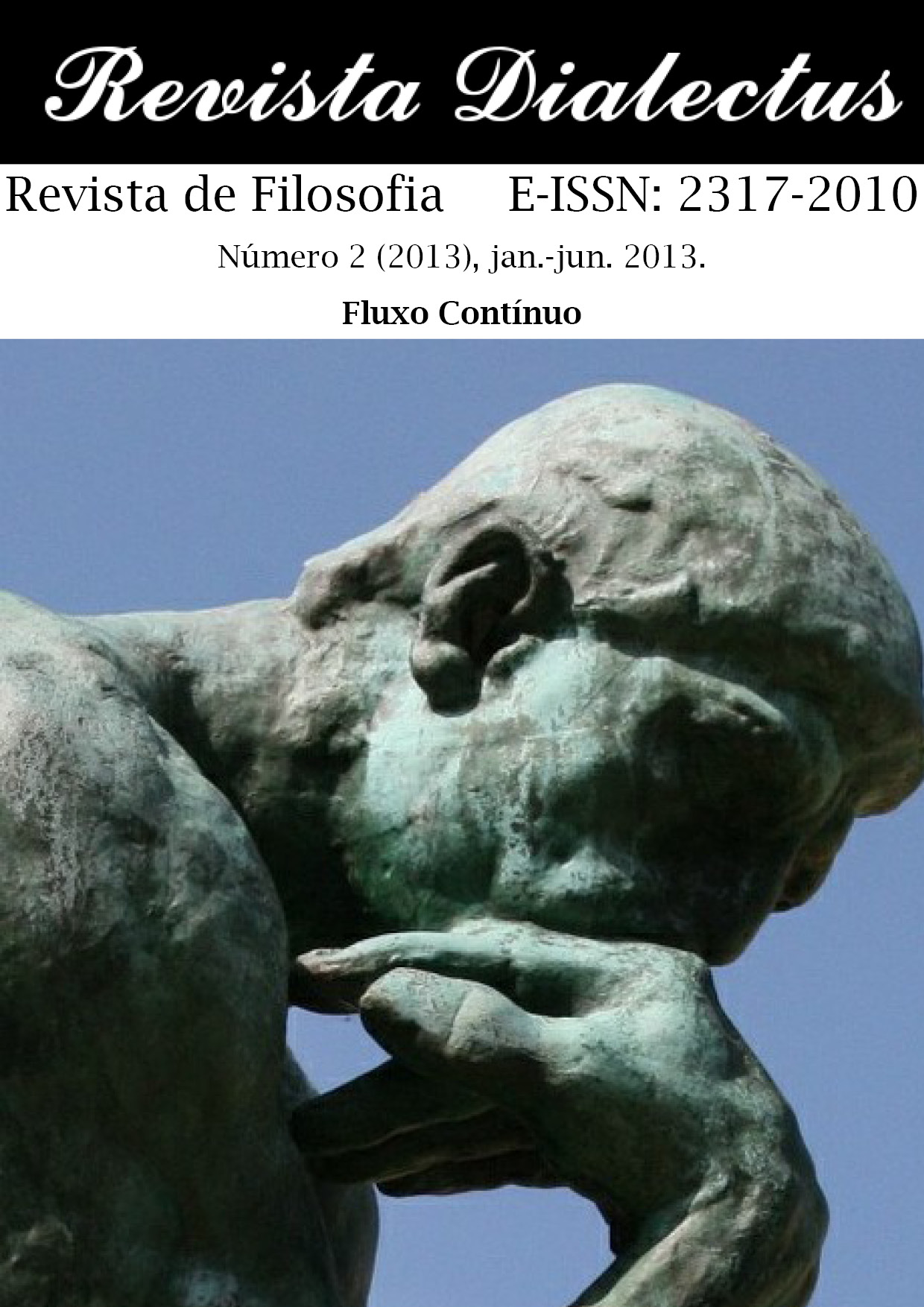O Universal
DOI:
https://doi.org/10.30611/2013n2id5117Abstract
Este texto foi publicado originalmente como capítulo do livro Alguns Problemas da Dialética (Moscou, 1973), e publicado em inglês como capítulo do livro Investigações Filosóficas na U.R.S.S. (Boston, 1975). Posteriormente foi publicado como parte da seção 4 (Verdade Particular) do livro Filosofia e Cultura (Moscou, 1991). Nele, Ilienkov faz uma análise materialista da categoria universal, em contraposição à concepção idealista que Hegel possuía da categoria. Além disso, o autor também se contrapõe à apropriação neopositivista desta categoria, que a entende a partir unicamente da lógica formal, como aquelas características que são comuns a cada objeto/indivíduo e a todos eles. Contrapõe estas perspectivas através de uma contextualização histórica do universal a partir do materialismo histórico-dialético e da realização de uma análise com base na lógica dialética da relação entre as esferas universal, particular e singular, saindo, assim, da aparência e chegando à essência da categoria universal. Este texto está disponível em Domínio Público no Marxists Internet Archive, seção português, sob licensa Creative Commons.Downloads
Published
2016-10-06
Issue
Section
Tradução
License
Authors who publish in this journal agree to the following terms:
- Authors retain the copyright and grant the journal the right of first publication, with the work simultaneously licensed under the Attribution-NonCommercial-NoDerivatives 4.0 International (CC BY-NC-ND 4.0) License, which allows the non-commercial sharing of work, without modifications and with acknowledgment of authorship and initial publication in this journal.
- Authors are authorized to take additional contracts separately, for non-exclusive distribution of the version of the work published in this journal (eg publish in institutional repository or as a book chapter), with acknowledgment of authorship and initial publication in this journal.
- Authors are allowed and encouraged to publish and distribute their work online (eg in institutional repositories or on their personal page) at any point before or during the editorial process, as this can generate productive changes as well as increase the impact and citation of published work (See The Free Access Effect).



















